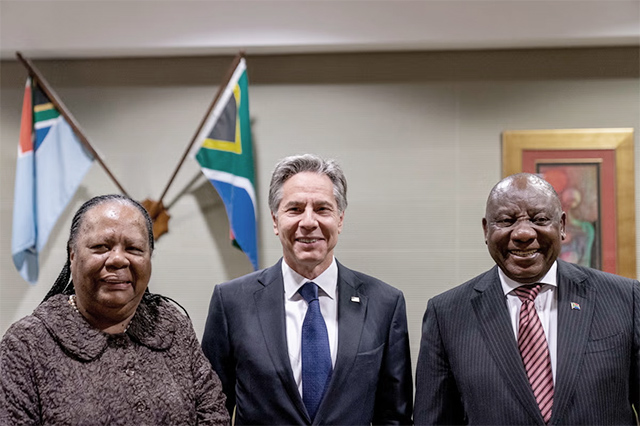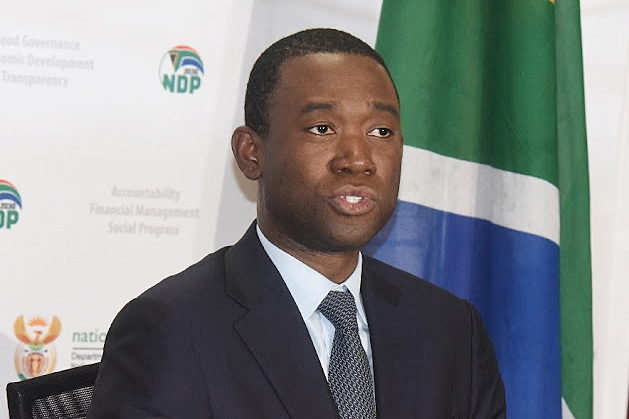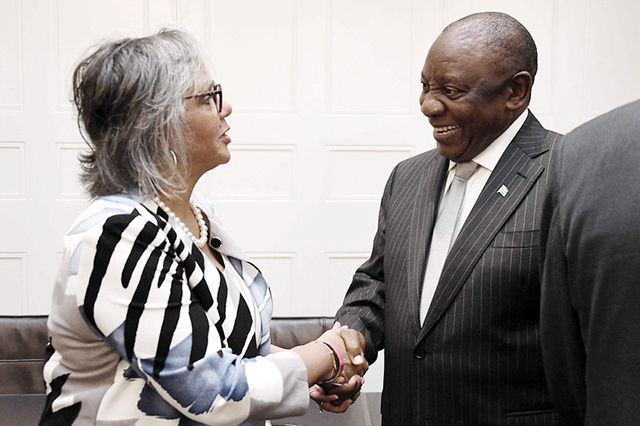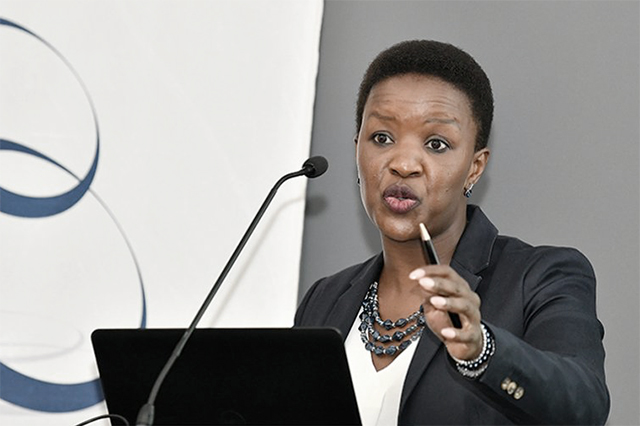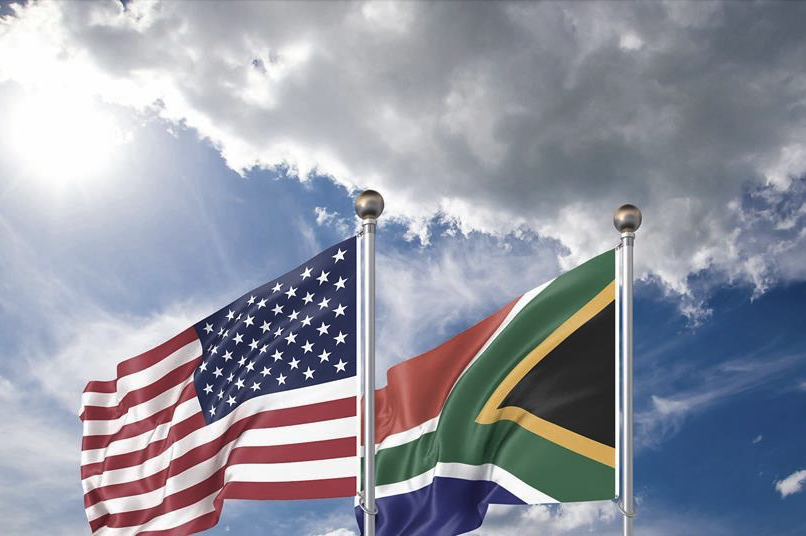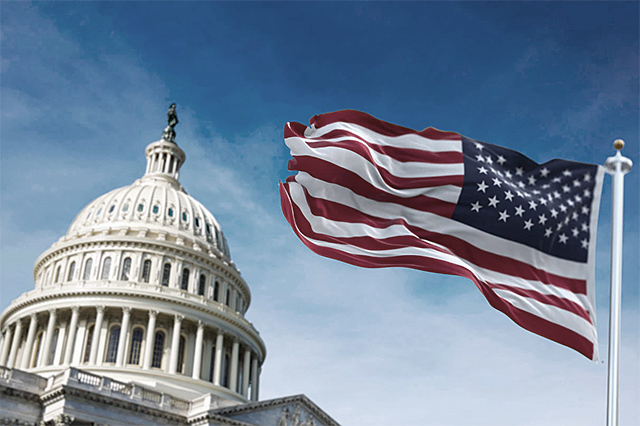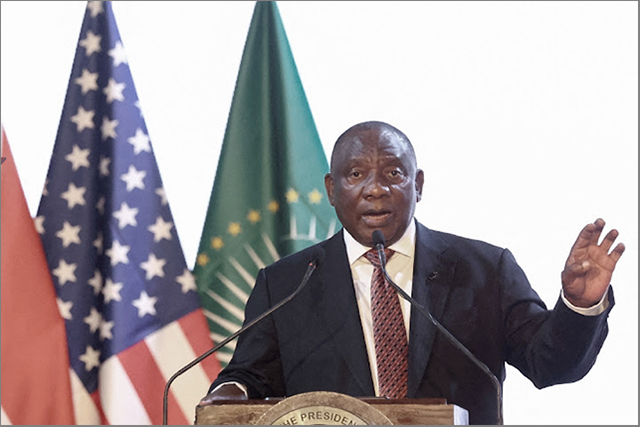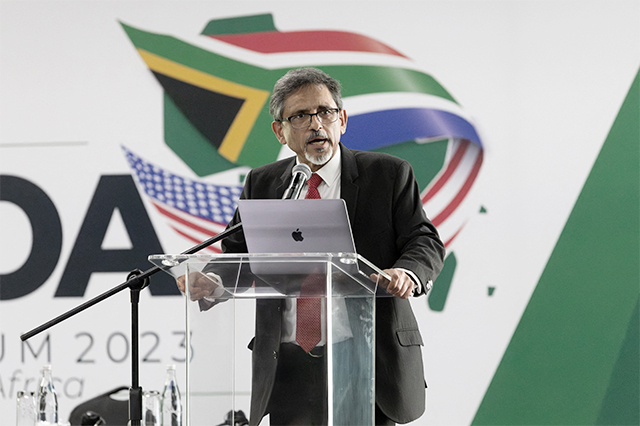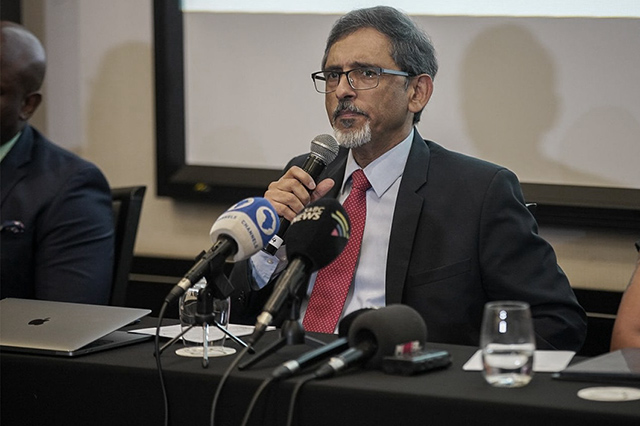AGOA, Inc: When chickens come home to roast
Last week, the American Embassy hosted a party labelled “The Mother of All Braais”. It was designed to crow over several intertwined “new facts on the ground” in American-South African bilateral economic relations.
The first was that South Africa continues to be included among the countries that are eligible for duty free exports into the US under the renewed African Growth and Opportunity Act (AGOA) for the next decade.
AGOA is an American law, first passed at the turn of the 21st century, that allows eligible African nations to export thousands of product lines duty free into America.
In previous years it has had bipartisan support in the American national legislature in concert with the idea that increased trade builds national stability in Africa and that expanding trade is a particularly important development effort for Africa.
The second item on the agenda was to celebrate the settlement of a closely related dispute over American beef/pork/poultry exports to South Africa.
After some congressional debate, a new 10-year-long version of AGOA was passed by Congress and signed into law by President Obama last year. For South Africa, even though the legislation was not set for a 15-year run as originally asked for by Trade and Industry Minister Rob Davies, this should have been read as particularly good news, despite the naysayers, because it continued to keep entry doors open, duty free, for a growing variety of South African products – things like processed agricultural products such as juices, specialty fruits and nuts, and wine – as well as much bigger ticket items such as luxury cars assembled in South Africa.
Depending on how the data is examined, somewhere north of 80,000 South African workers are directly affected (positively, that is) by such sales to US customers – and many more are indirectly affected as well. In the motor sector, especially, a good chunk of the vehicles made in South Africa are now destined for export to the US. Consider, for a moment, what it would have meant for jobs, family incomes, national accounts and social welfare if such exports – and jobs – withered away. A commonly used figure has been that the total AGOA-related exports to the US from South Africa are nearly $2-billion/year.
But, in the fullness of time towards the latter half of 2015, the debate over AGOA revealed to all and sundry an awkward, unresolved trade problem that was poised to scupper South Africa’s continued duty free access to US markets for its products under this newly passed AGOA framework. It turned out that South Africa had been walling off entry to its domestic market for potential American chicken, beef and pork exports for years, ostensibly for a variety of phyto-sanitary reasons.
But it was chicken that had the real political juice – and this now threatened to upset everything. The available South African market for American-produced meat currently is not all that large, but it was the principle of the thing. Tariffs on foodstuffs were bad enough, but to be locked out for years for what were suspected to be spurious health and sanitary reasons was just a bridge too far for Congress – especially since American poultry is exported to about 138 nations, and because the tariffs to be imposed on American products were substantially higher than those in place on Brazilian or European chickens.
But American senators and congressmen (the people who must pass bills into laws) have real constituents who often write, call, e-mail of visit their offices in order to demand support for their industries or protection from what they deem to be unfair practices. The implicit threat, of course, is if they don’t get help from the elected representatives they send to Washington, they’ll stop voting for them or contributing to their re-election campaigns. And this became something of a near-textbook example of such a snarl.
Senators from Delaware and Georgia, both big chicken and egg producing states, were increasingly coming under siege by their respective poultry raisers who were complaining that their chickens were unfairly being kept out of the South African market – even as the US was allowing South African products to enter the US duty free through AGOA, for crying out loud, as they would have said.
Offering those lovely AGOA privileges to South Africa and several dozen other African nations was all well and good at a theoretical level of support for their respective economic growth and stability, but not if one of those same countries was unfairly keeping US exports out, especially when they would be thoroughly competitive on that local market. As a result of all this, two senators in particular, John Isakson of Georgia and Chris Coons from Delaware – both influential on trade matters – effectively threatened to hold up any final passage of this newest AGOA legislation, and most especially South Africa’s place under it, until there was some serious movement for a solution on American poultry exports. No chickening out on this one, this time, it seemed.
That put the fox among the AGOA chickens for sure. As it became clearer that Messrs Coons and Isakson were not hatching any old idle threat, there was much clucking over the nature of the South African obstacles and reasons for them on radio, television, in print and on social media among South Africans.
For some protagonists, especially callers to those late night talk shows and among social media alarmists, here was a line that had to be scratched in the sand to prevent South Africans from being forced to consume all those supposedly disease-riddled, hormone-enhanced, steroid-laced, arsenic-laden, inferior chicken parts that American chicken distributors were unable to dump anywhere else on the entire planet. Social media contributors dug up every scare story that was findable about American agriculture and, soon enough, people were sharing a photo of an American chicken coop worker in one of those industrial sized chicken batteries, wearing head to toe haz-mat gear, including goggles and even a breathing mask as he worked among the chickens.
(Nobody bothered to explain that such precautions would probably have been due to worker health and safety regulations. A huge chicken battery with thousands of birds doing what they do all day clearly does not smell like a bowl of attar of roses after all. And, of course, someone else posted a picture of a South African worker in a very similar chicken coop, complete with that same haz-mat-style gear, except for the fact that the poor man had no breathing apparatus and mask.)
Eventually, AGOA finally passed through Congress (after all, it is not simply about South Africa) and was signed into law by President Obama. But, this was not before there was a very firm understanding that the US Government would engage in what was called an “out of cycle review” of South Africa’s trade practices and that it would – successfully – undertake some very strong efforts to resolve the standoff over healthy chicken meat. Of course, throughout all this, the South African chicken and egg producers association led a kind of rearguard action to forestall US chickens coming into South Africa.
A key argument for this body was that cheap (or efficiently produced, depending on where you sat) American chickens would be too competitive vis-à-vis South African producers, leading to job losses and unemployment. The word “dumping” kept coming up, even though this term has a very precise meaning in international trade. Dumping is when a nation deliberately tries to gain unfair market access by flogging a product below the actual cost of production, thereby driving out legitimate domestic competitors.
No serious commentator actually believed that was the plan, although there were debates about whether the chicken to be winging its way to South Africa would have that lower cost level because it would largely be the dark meat separated from the more sought-after chicken breasts – the arguably preferred chicken meat in America. (Just a question, but had anyone making such a claim ever noticed just how many zillions of Buffalo wings and drumsticks are consumed routinely in America while its millions of fans watch football, baseball, basketball, ice hockey and tennis on television throughout the year, and most especially on Superbowl Sunday?)
Anyway, the other side of the argument, of course, was that here could be a bit of a break for local, increasingly hard-pressed, lower income consumers, since competition usually leads to lower prices, and chicken meat remains the primary protein for most South African consumers. And, of course, the argument could also be made that with additional chicken meat entering the market, more skilled jobs than those dead-end tasks of mucking out chicken coops might become available in processing and distribution of added foreign imports.
The South African negotiating position effectively was that nasty avian diseases had, on occasion, erupted in the US and imports of tainted chicken could compromise South Africa’s own flocks – even though there has never been a nationwide outbreak in the US of such a disease, as well as the fact that imports would obviously be screened prior to their distribution, just in case. The negotiating teams seemed to be playing, well, chicken, with both eager to avoid becoming roadkill on the international economic highway.
Just by the way, in the midst of all this to-ing and fro-ing, there was another bit of action taking place locally. South African frozen chicken meat sold in stores has routinely been injected with brine – up to a quarter of the total weight. Says so right in the teeny tiny small print somewhere on the label.
Now, a counterargument could well have been made that in contrast to these artificially fattened chickens afloat with salt water, American chickens are salted to taste at the table, as opposed to at the abattoir. But the local poultry and egg council indicated its deep disapproval as the government enacted new regulations designed to lower that brine level down to 15%. The chicken producers council’s argument was that such measures would drive prices up, or drive producers out of business, or, perhaps, just drive consumers crazy trying to figure it all out. Somehow, opposition to those new regulations doesn’t sound particularly convincing that the council was on the side of that hard-pressed consumer of a piece of tasty, nourishing chicken.
Weeks passed. Then months, and the deadline for successful resolution of the issue kept getting pushed further into the future to avoid the US Government from decertifying South Africa’s agricultural exports under AGOA – a threat that was made explicit in a presidential announcement at the end of 2015. But eventually, cooler heads did prevail. Finally, as an agreement on inspection standards and import quotas was reached in mid-March, the first wave of an anticipated 65,000 tonnes of American chicken parts were finally on the move to South Africa.
And so, to celebrate the accomplishment of successful, adult negotiating behaviour, the American Embassy hosted “The Mother of All Braais” to announce the arrival of American chicken/beef/pork, and to signal that the way is now cleared for future discussions on other longer-term, larger trade relationships. At the braai, while hungry guests were increasingly tormented by the aromas of grilled chicken and some spiced, pulled pork, US Ambassador Patrick Gaspard, along with Ambassador Faizel Ismail, the lead negotiator for South Africa’s Department of Trade and Industry, along with the president of the United States of America Egg and Export Council (USAPEEC), Jim Sumner, engaged in a public kiss-kiss, hug-hug moment over the success of these negotiations.
As Ambassador Gaspard told the gathering, “It is an honour to welcome so many South African friends to my home today. With the AGOA trade talks concluded, we can now redouble our efforts toward a partnership for prosperity that creates jobs and supports South Africa’s economic growth. We’re already working on strengthening the domestic information economy, including ICT and pharmaceuticals, addressing structural challenges in order to improve port efficiencies, and expanding private sector power generation, including rooftop solar revolution. And this is just the beginning. I am certain, working together, our governments can achieve great things.”
Then the American chicken and egg guy, James Sumner, added, “We are thrilled to be back in the South African market. This will help South African consumers who are facing drought and increasing food prices. US chicken is among the most safe and wholesome in the world. I know in the future we can all work together effectively and co-operatively to the benefit of Americans and South Africans.”
Finally, Ambassador Ismail stepped up to add some words of praise for the negotiators on behalf of the Department of Trade and Industry, highlighting the co-operative spirit of the two negotiating teams in resolving the dispute.
By this time, however, with the crowd inching ever closer to those sizzling chickens during a truly perfect autumn day in Pretoria, the aromas wafting our way from the big braais were becoming overwhelming. There were silent prayers, “No more speeches! Please! Let’s eat!”
But, of course, all of this bonhomie wasn’t simply a demonstration of altruism designed to feed the hungry, or a humanitarian effort to provide cheaper protein for all South Africans. The real kicker in the agreement was that fully half of the 65,000 tonne quota of imported US chickens has been set aside for the purchase of and onward distribution by historically disadvantaged individual importers – along with helpful seminars to instruct new entrants into the market about how to work their way through the bi-national bureaucratic complexities of purchasing, importing and distributing these American products.
There are even seminars planned for new-to-the-industry chicken raisers to make them more competitive domestically. With all that in mind, as we were all munching on our pulled pork sandwiches, chicken skewers and other braai-style delicacies, businessman Moeletsi Mbeki turned to the writer to whisper, sotto voce, that with those elements of the US marketing strategy now in place, the South Africans have simply been outmanoeuvered.
The Americans have now created an instant constituency for these products in the persons of these new market entrants. They will now become a key interest group that, going forward, will support such products – and become ever more eager to push for additional imports whenever they can – assuming the products don’t develop a reputation of being dangerous to one’s health or equanimity about food safety. Well, yes, that’s how the big boys play; build an interest group that works in your favour – and generate a growing constituency for your products. Look for those red, white and blue chickens in a supermarket near you?
And yes, too, those spiced chicken skewers and the nicely seasoned pulled pork tasted pretty good too. Just right for a barbeque, er braai, under the blue skies above Pretoria’s Waterkloof Ridge.



